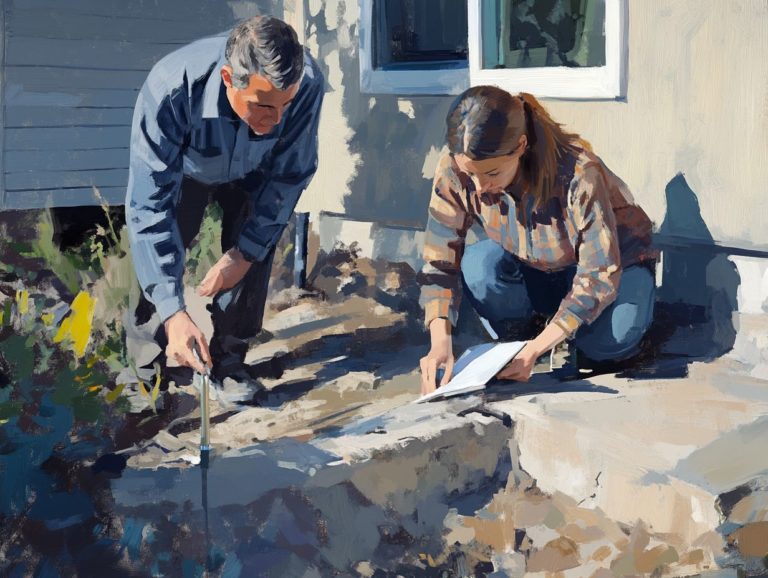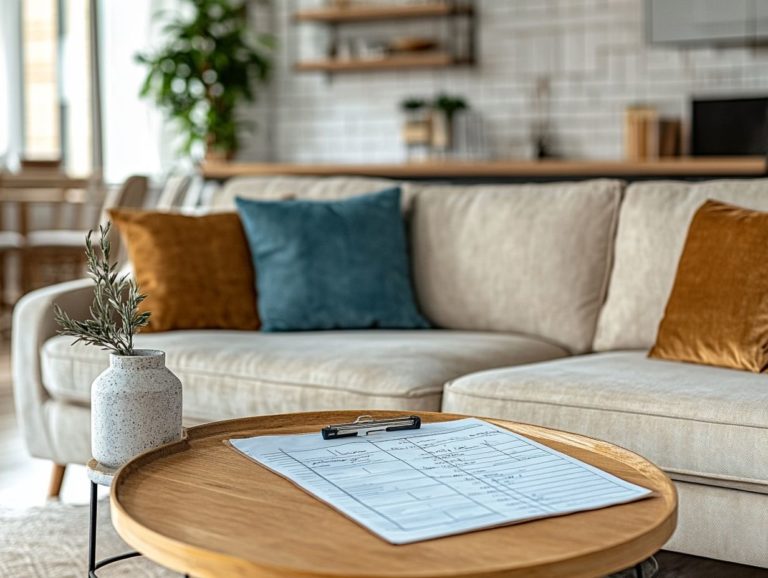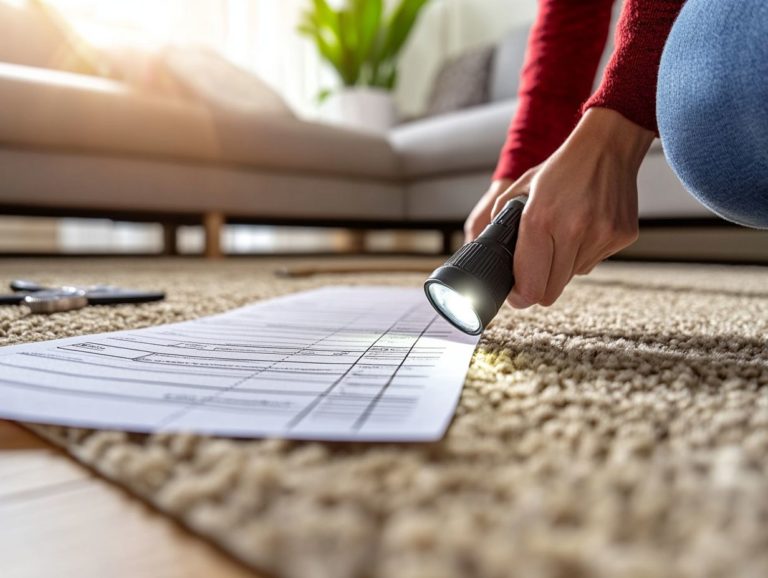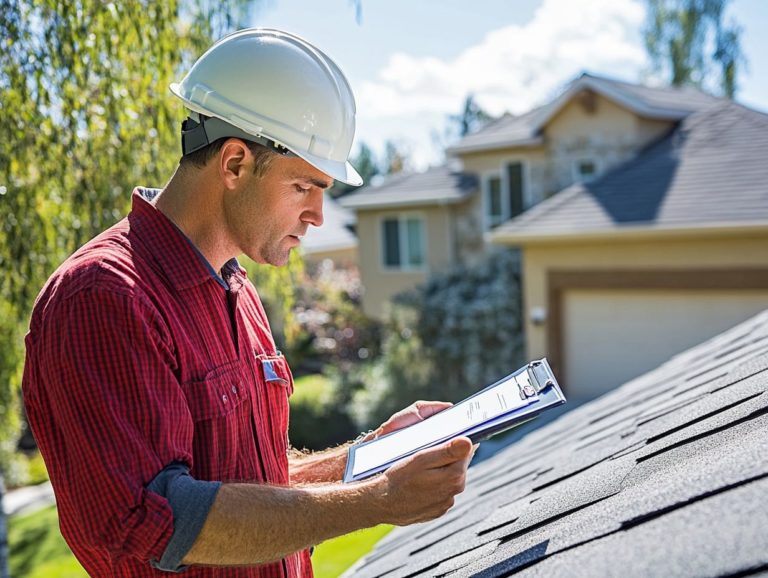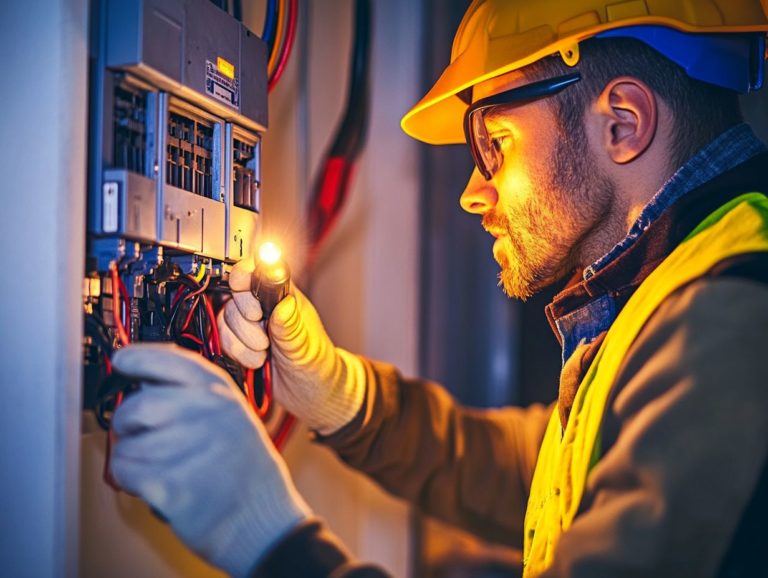How to Prepare for a Home Inspection as a Seller
Selling your home can feel like navigating a complex process, and one of the essential steps in this journey is the home inspection. This assessment serves as a crucial tool for buyers, allowing them to evaluate the property’s condition, which can significantly impact negotiations and the final sale price.
You ll discover what both buyers and inspectors typically seek during an inspection. You will also learn how to prepare your home effectively both inside and out address common concerns, and explore strategies to enhance your home s value.
By grasping the details of the inspection process, you ll be able to approach it with confidence, paving the way for a smoother sale.
Contents
- Key Takeaways:
- Understanding the Purpose of a Home Inspection
- Preparing Your Home for Inspection
- Interior Preparation
- Addressing Common Inspection Concerns
- Maximizing Your Home’s Value
- Final Steps Before the Inspection
- Navigating the Inspection Process
- Frequently Asked Questions
- What is a home inspection and why is it important for sellers?
- When should I start preparing for a home inspection as a seller?
- What are some key areas of the home that should be inspected?
- What should I do to prepare my home for an inspection?
- How much does a home inspection typically cost?
- Can I be present during the home inspection?
Key Takeaways:

Understand the purpose of a home inspection and what buyers and inspectors are looking for to better prepare yourself for the process. Take the time to properly prepare your home for inspection, both on the exterior and interior, to address any potential concerns and maximize your home’s value. For detailed guidance, check out this resource on how to prepare for a home inspection. Be present during the inspection and proactively address any issues that may arise, while also negotiating effectively with the results to ensure a smooth process.
Understanding the Purpose of a Home Inspection
Understanding the purpose of a home inspection is vital for you, whether you’re a buyer or a seller in the competitive real estate market of Medina, Ohio. A comprehensive home inspection helps you uncover any potential issues within the property think structural concerns or necessary repairs enabling you to make informed decisions.
It also promotes transparency during negotiations, which can significantly affect the final sale price. This process offers the opportunity to tackle issues head-on, enhancing your home’s appeal and positioning it more favorably in the market.
What Buyers and Inspectors Are Looking For
During a home inspection, you’re not just casually browsing; you’re diving deep alongside inspectors who are keenly examining vital elements that could impact the safety and functionality of your future property. They’re on the lookout for potential leaks, structural concerns, and the condition of essential systems like heating, ventilation, and air conditioning (HVAC), plumbing, and electrical components.
But it doesn t stop there. You can expect to uncover less visible issues, such as insulation deficiencies, pest infestations, or aging roofs, which may not be immediately apparent.
Grasping the implications of these findings is essential, as they can dramatically sway financial negotiations during the purchase process. For example, if an inspector s report reveals necessary repairs for major systems, you gain the upper hand to negotiate a lower price or request that the sellers address those repair issues before the deal is sealed.
In the end, these inspections are critical for enabling you to make informed decisions, ultimately helping you sidestep unexpected expenses after taking ownership of your new home.
Preparing Your Home for Inspection
Preparing your home for inspection is an essential step that can significantly impact the outcome of your home-selling journey. To ensure success, learn how to prepare for a home inspection as a seller by enhancing your curb appeal and tackling any minor repairs to prevent potential buyers from being deterred or raising concerns during the inspection process.
Taking these actions not only showcases your home in its best light but also instills confidence in prospective buyers.
Exterior Preparation
Exterior preparation is essential for making a lasting first impression on potential buyers. It involves a series of important tasks, such as cleaning gutters, inspecting the roof for any damage, and ensuring the overall curb appeal of your home is inviting.
Taking the time to power wash the siding, trim, and pathways can dramatically brighten your home’s appearance, removing any grime or mold that may have accumulated over time. A simple refresh of your front door with a fresh coat of paint can provide a pop of color, drawing the eye and inviting prospective buyers to step inside.
Consider planting seasonal flowers or meticulously maintaining your lawn. These touches add vibrancy and showcase your commitment to upkeep.
These specific exterior tasks not only enhance aesthetics but also play a crucial role in setting a positive tone for the home inspection. After all, diligent upkeep suggests to buyers that the interior has likely received the same level of care and attention.
Interior Preparation
Interior preparation is crucial for crafting a welcoming atmosphere. This involves actions such as decluttering and deep cleaning, along with ensuring that essential systems like smoke detectors and appliances are in proper working order before your home inspection.
Taking these steps can significantly influence a buyer’s perception and impact the overall sale price. Start by removing unnecessary items to make your spaces appear larger and more inviting.
Next, thoroughly clean surfaces, carpets, and windows to enhance your home’s appeal. It’s vital to conduct maintenance checks on critical elements, including plumbing and electrical systems.
This proactive approach helps avoid surprises during the inspection and showcases your care to prospective buyers. Understanding the benefits of home inspections for sellers can create an environment that feels fresh and well-kept, boosting confidence in your property and leading to a smoother and more efficient sale process.
Addressing Common Inspection Concerns

Addressing common inspection concerns is essential for sellers, as it helps minimize surprises during the home inspection process.
Be proactive about potential structural issues, electrical or plumbing concerns, and repairs that could significantly impact the sale.
By taking these steps, you position yourself favorably in the eyes of potential buyers and facilitate a smoother transaction.
Dealing with Structural Issues
Addressing structural issues is paramount, as these concerns can impact both the safety and valuation of your home. Hire a qualified home inspector to evaluate the foundation and other critical areas.
A comprehensive assessment may reveal problems like cracks in the foundation and uneven flooring. These issues can deter potential buyers and complicate the sale process. The integrity of your home not only influences the immediate safety of its occupants but can also lead to significant repair expenses that may diminish the property’s value.
To effectively tackle these challenges, prioritize obtaining detailed repair estimates from licensed contractors. Disclose any known issues to prospective buyers to foster transparency and lead to a smoother transaction.
Handling Electrical and Plumbing Concerns
Addressing electrical and plumbing concerns is crucial for ensuring the safety and functionality of your home. These systems often face scrutiny during inspections, and neglecting them can lead to significant repair costs down the line.
Common issues include outdated wiring, corroded pipes, and pesky leaks, all of which can undermine your home’s integrity and safety. Don t wait hire professionals for pre-inspections now to uncover potential issues before they become major headaches.
For instance, ensure that all outlets are grounded and up to code to reduce hazards. Regular maintenance on plumbing fixtures like checking for leaks and scheduling drain cleanings can save you from costly damages.
By addressing these concerns before listing your home, you boost buyer confidence and enhance its overall value.
Maximizing Your Home’s Value
To maximize your home’s value before a sale, you need a strategic approach. Focus on enhancing curb appeal, addressing minor repairs, and implementing thoughtful updates.
These steps grab the attention of potential buyers and help you command a higher selling price.
Improving Curb Appeal
Improving your curb appeal is one of the most effective ways to create a lasting first impression. It involves thoughtful enhancements like landscaping, exterior updates, and maintaining an inviting entrance to your home.
To attract potential buyers, consider specific strategies centered around landscape design. Plant vibrant flowers or install decorative stones to guide the eye toward your house. A fresh coat of paint on your front door signals warmth and care while elevating the overall aesthetic.
Simple updates, such as new outdoor lighting or strategically placed potted plants, can further enhance the allure, inviting visitors to explore. These subtle yet impactful improvements not only set a positive tone for the home inspection but also cultivate a welcoming atmosphere that sparks admiration and interest.
Updating Key Areas
Updating key areas of your home, especially the kitchen and bathroom, can boost its value and appeal. This makes your property more attractive to potential buyers during inspections.
The kitchen and bathroom are often the heart of the home. Improvements here can yield impressive returns on your investment.
A modern kitchen with updated appliances and stylish countertops captivates buyers. Similarly, a renovated bathroom with contemporary fixtures can influence their decisions.
These upgrades create a functional living space and help your property stand out in a competitive market. Investing in these areas can transform your house into a desirable home.
Final Steps Before the Inspection
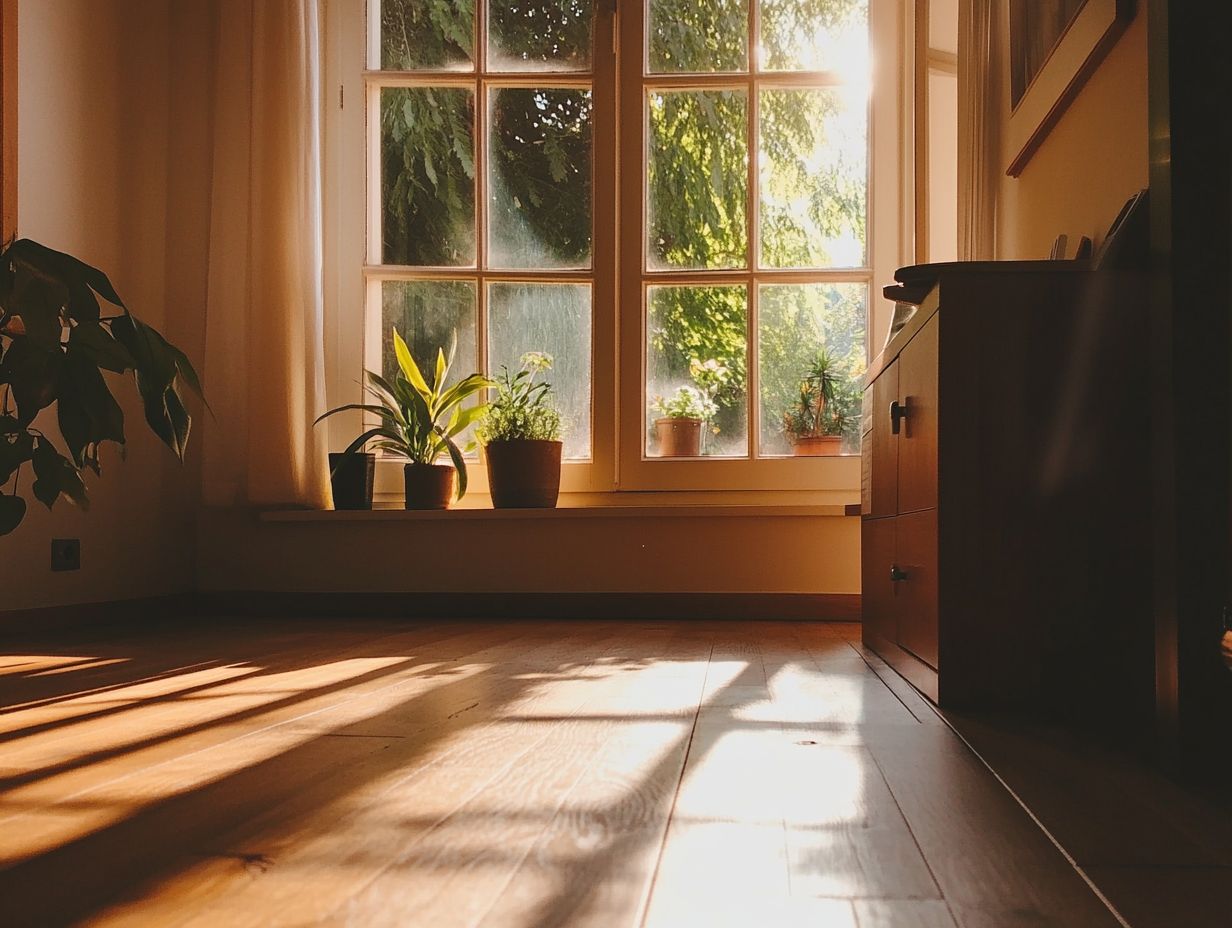
Before the inspection, carefully check your home to ensure safety and cleanliness while making a good impression. For detailed guidance, refer to how to prepare for a home inspection.
This effort leads to a smoother inspection process that buyers will appreciate.
Double Checking for Safety and Cleanliness
Double-checking for safety and cleanliness is an essential step you should not overlook. Home inspectors notice these details, which can shape their perception of your home.
Having a tidy environment free of hazards leaves a lasting impression. In the hours before the inspection, implement these effective measures:
- Declutter your spaces.
- Store dangerous items like chemicals securely.
- Check that smoke detectors work.
A thorough cleaning of common areas, bathrooms, and kitchens shows you care for your home. Following these tips creates a welcoming atmosphere that demonstrates your home is well-loved.
Navigating the inspection process requires understanding the inspector’s role and interpreting the results accurately. This preparation allows you to negotiate the price based on the insights gained.
Mastering these elements ensures a smoother and more informed experience during the transaction.
Being Present During the Inspection
Being present during the inspection gives you valuable insights and a chance to engage with the inspector. You can ask questions that clarify findings and address potential concerns.
Active participation helps you understand your home’s condition and tackle red flags before they become major issues. Attending the inspection builds trust with potential buyers, showing your commitment to transparency.
This connection enhances the experience and paves the way for a smoother transaction.
Handling Inspection Results and Negotiations
Handling inspection results and negotiations requires a proactive approach. Address essential repairs and negotiate the price based on the inspector’s findings.
Understanding these results lets you assess your property’s condition and spot areas needing attention. Openly discussing these findings with potential buyers builds trust and fosters collaboration.
This transparency shows you’re willing to make necessary repairs, positioning you favorably in negotiations.
Frequently Asked Questions
What is a home inspection and why is it important for sellers?
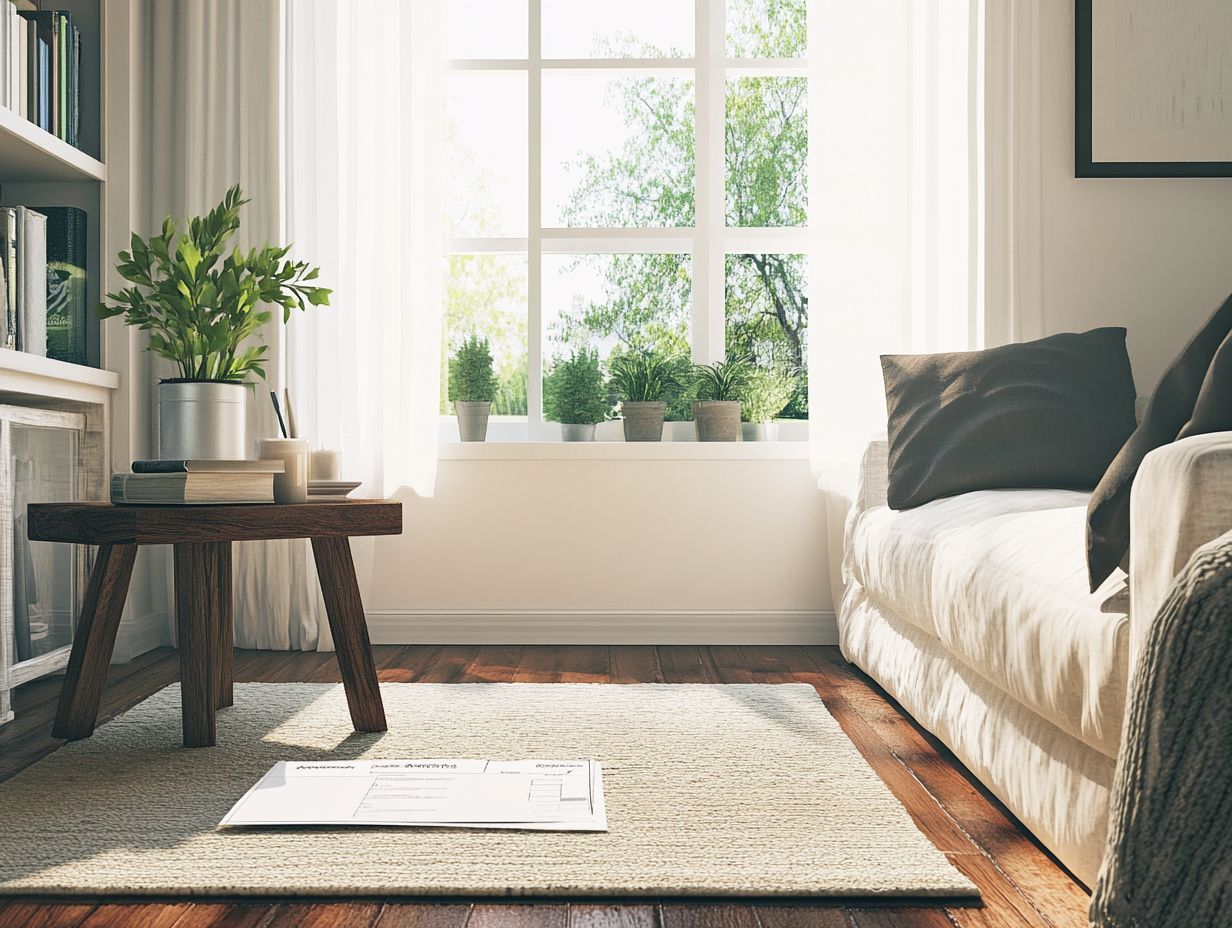
A home inspection is a thorough examination of a property’s condition, usually conducted by a certified home inspector. It is important for sellers because it helps identify any existing or potential issues with the property that may affect its value or saleability.
When should I start preparing for a home inspection as a seller?
The best time to start preparing for a home inspection is before you put your house on the market. This gives you time to fix major issues. For effective strategies, check out how to prepare for a successful home inspection. Making repairs can increase your home’s value.
What are some key areas of the home that should be inspected?
Some key areas of the home that should be inspected include the foundation, roof, plumbing, electrical systems, heating and cooling systems, and major appliances. Check for signs of water damage, mold, or pests.
What should I do to prepare my home for an inspection?
Start decluttering your home now to make it accessible for the inspector. Ensure all utilities are turned on and provide any necessary keys or codes. It’s also a good idea to gather any maintenance records or warranties for major systems or appliances, and you can find more details in our guide on how to prepare for a home inspection.
How much does a home inspection typically cost?
While a home inspection typically costs between $300 and $500, think of it as an investment in your peace of mind and future savings!
Can I be present during the home inspection?
While it’s not required, it is recommended for sellers to be present during the home inspection. This gives you the opportunity to ask any questions and address any concerns that may arise, especially considering the benefits of a home inspection before selling. However, it’s important to allow the inspector to do their job without any distractions.

